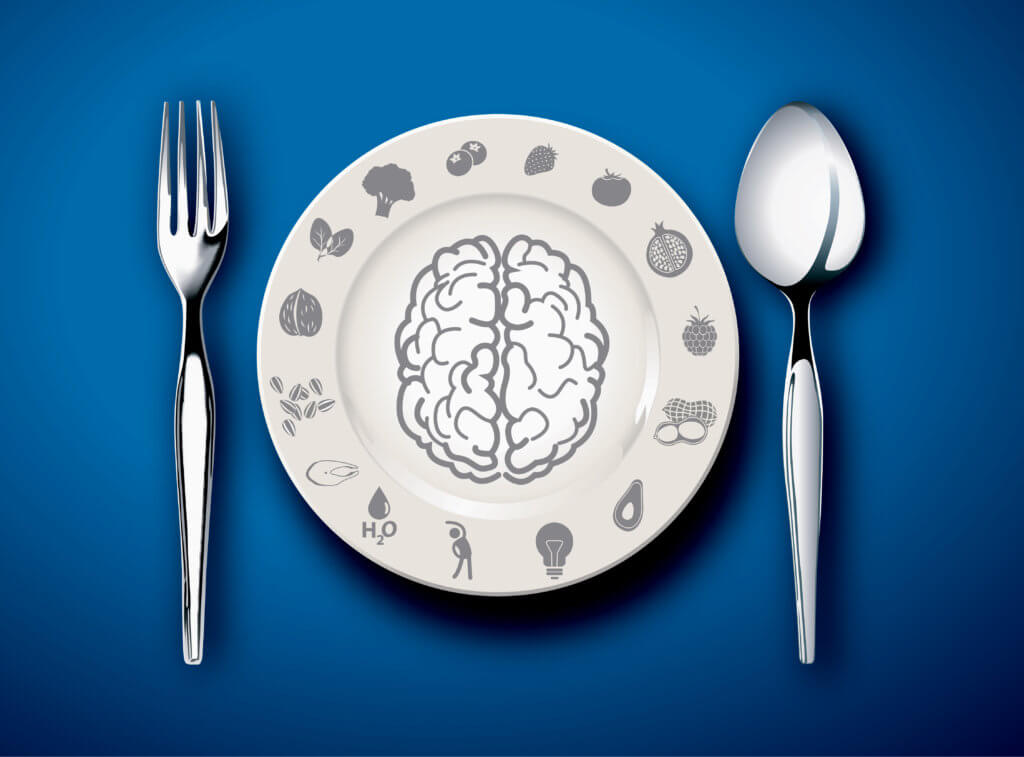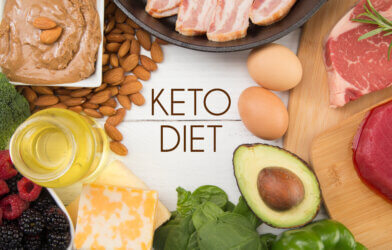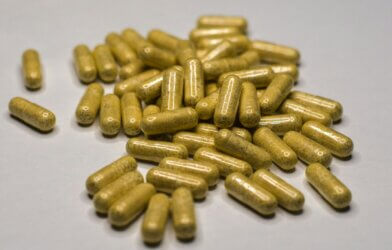The brain is the main control center of our body. It’s in charge of keeping the heart beating and lungs breathing, allowing us to move, feel, and think.
That’s why it’s a must to keep it in peak working condition. The foods we consume play a big role in keeping a brain healthy. What we consume every day dictates improvement in specific mental tasks, such as memory and concentration. Conversely, a poor diet can be significantly detrimental to our brains and executive functions, making it harder to focus or be productive on the job.
A healthy diet, of course is a must, but studies also show that certain foods may have a particularly impactful role in keeping the brain strong. Here are five different foods or beverages that, when consumed regularly, could provide a big boost for your brain health.
Walnuts
The divided shape and folds of a walnut, looking something like a miniature human brain, are visual cues to its properties as one of the healthiest brain foods. Walnuts are rich in omega-3 fatty acids and polyphenols, which have been shown in other studies to offset the inflammation and oxidative stress that contribute to cognitive decline.
Now, a new study finds that walnuts may even slow down cognitive decline in at-risk older adults. The study followed the results of nut consumption in 640 independent elderly people in two locations: Loma Linda, California and Barcelona, Catalonia, Spain. Over the course of the two-years, a control group was asked to abstain from walnuts while the test group consumed walnuts daily.
Results show that there was little difference between those who ate walnuts daily and those in the control group in participants who at the beginning of the study had been healthy and at low risk for cognitive decline. On the other hand, older adults who were most at risk at the beginning of the study — those who had smoked or who had lower baseline neuropsychological test scores — benefited the most from a diet that included walnuts every day.
READ MORE: Brain Food: Daily Dose Of Walnuts May Slow Cognitive Decline, Even In At-Risk Older Adults
Avocados
An apple a day may keep the doctor away, but what about an avocado a day? Turns out it may be even better. A study finds that eating a whole fresh avocado every day could lead to better brain and eye function in healthy older adults. That’s due to the level of lutein and other nutrients in avocados.
The study followed 40 healthy adults over 50 as they ate one fresh avocado per day for six months. Study participants in a control group ate either a medium potato or a cup of chickpeas in place of the avocado. While providing the same calories, the control foods have little lutein or monounsaturated fats.
The results of this study suggest that the monounsaturated fats, fiber, lutein and other bioactives make avocados particularly effective at enriching neural lutein levels. That, in turn, may provide benefits for not only eye health, but also for brain health.
Participants also showed better results on cognition tests measuring memory, processing speed and attention levels than those in the control group. Lutein levels in the eye also more than doubled in subjects who consumed fresh avocados, compared to a supplement.
READ MORE: Study Finds Eating An Avocado Every Day Strengthens Eyes, Brain
Beetroot juice
It doesn’t sound appealing, but drinking a glass of beetroot juice before you exercise could help an aging brain work as well as one far younger. Researchers at Wake Forest University say that giving older adults beetroot juice prior to a workout may improve brain connectivity and efficiency.
The study authors looked at adding the power of beets to a workout regimen because they contain high amounts of dietary nitrate, which metabolizes into nitrite and then nitric oxide in the body and helps with circulation. Prior studies have indicated nitric oxide can be beneficial when it comes to exercise performance.
Researchers tested 26 men and women at least 55 years old who did not exercise regularly, had high blood pressure, and took a maximum of two medications for the condition. Half of the individuals were given a beetroot juice supplement called Beet-It Sport Shot an hour before a 55-minute, moderately intense walk on a treadmill three times a week for six weeks. The other half performed the same exercise routine, but were given a placebo beetroot juice supplement that contained very little nitrate.
They found that the participants who drank the nutrient-rich beetroot juice had higher levels of nitrate and nitrite in the blood than the placebo group, stimulating better oxygen flow to the brain.
READ MORE: Want To Beat An Aging Brain? Drink Beetroot Juice Before A Workout
Grapes
A study out of UCLA reports that two cups of grapes a day may protect “against significant metabolic decline in Alzheimer-related areas of the brain.” Researchers say that low metabolic activity in these areas is a hallmark of early stage Alzheimer’s disease.
The study had 10 participants receive a daily serving of grape powder equal to about 2.25 cups of grapes a day. Participants in a control group were served a placebo powder that looked and tasted similar to the grape powder. The participants were all suffering from “mild” decline in cognition.
After six months, scans of the participants’ brains were taken and cognitive performance was tested. Those who ingested the grape powder maintained healthy levels of metabolic activity in the parts of the brain where Alzheimer’s tends to appear first. Those who ingested the placebo showed a metabolic decline in the same areas.
The study also shows that those who consumed the grape powder demonstrated improved metabolic functioning in areas of the brain where cognition and working memory are seen.
Researchers speculate that grapes aid the brain in various ways. They were found to aid in healthy blood flow, maintain healthy levels of a critical chemical that helps support memory, and show beneficial anti-inflammatory effects as well.
READ MORE: Eating this every day may help prevent Alzheimer’s disease
Pickled capers
One food that usually takes a back seat in most dishes can actually have a profound effect on your body and mind. A study reveals that pickled capers contain a key compound which improves brain and heart health.
The salty green garnish is rich with a compound called quercetin. Researchers say capers are the richest natural source of quercetin. The pickling process is also believed to increase the amount of quercetin in the buds.
The study finds that quercetin modulates a specific type of ion channel in the body, called the KCNQ channel. Ion channels are specific proteins in cell membranes that allow ions like sodium, potassium, and calcium to travel in and out of cells. KCNQ channels help the transport of potassium. Quercetin regulates how KCNQ channels sense electrical activity in the cell, thus regulating potassium transport.
The study tested different plant extracts to see how they affect KCNQ channel function. Findings reveal that caper extracts activate these channels. Specifically, the caper extract “tricks” the ion channels into opening when they would normally be closed. This allows potassium to move across the cell membrane. This increase activity of KCNQ channels in different parts of the body is potentially highly beneficial.
READ MORE: Adding pickled capers to your meal may boost brain and heart health
There are many, many more foods that support a healthy brain and can help keep your mind in shape as you age. Of course, any significant changes to your diet or lifestyle should be approved by your doctor before starting them. If you have any specific foods or beverage you enjoy for better brain health, please leave your suggestions in the comments below!











